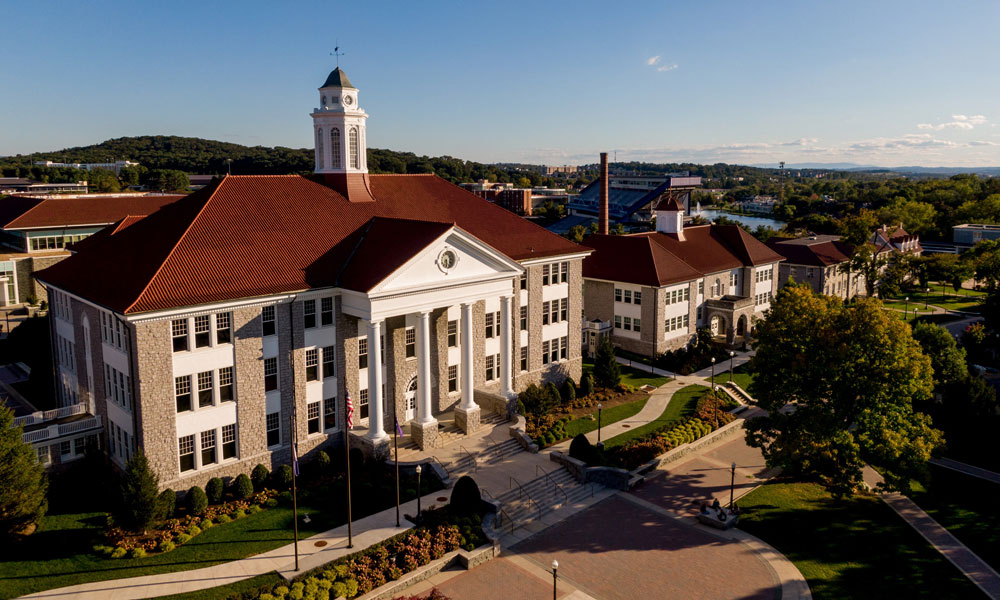Dr. Yongguang Hu and the Confucian Empire
Office of the Provost
Dr. Yongguang Hu is an Assistant Professor of History and the coordinator of the Asian Studies program at JMU. He teaches a wide range of courses, including world history surveys, premodern China, modern China, modern Japan, and seminars in East Asian studies. He has published several articles and reviews in Journal of Song-Yuan Studies, Northeast Asian History, Ming Studies and 華中學術. His research mainly focuses on Confucian education and social transformations in the middle period of China (800-1300).
One of Dr. Hu’s recent articles examines the rise and decline of the National Three Hall System (sanshefa 三舍法) in early twelfth-century China. Often ignored in traditional historiography, the National Three Hall System established more than one thousand government schools and enrolled more than 210,000 students throughout the Song empire, opening a new avenue for talented young men to receive formal Confucian education and accumulate cultural capital. He collects numerous records from over five hundred gazetteers to analyze school constructions, administrative policies, economic resources, and regional variations. The National Three Hall System had many characteristics that can be labeled as “modern.” For example, students were required to take monthly, seasonal, and annual examinations and those who performed well would be promoted from a lower grade to a higher one, from a county school to a prefectural school, and eventually to the Imperial University at the capital. The government also supported students financially—each of them would receive a monthly stipend of 700-1,000 copper coins, enough to cover basic needs, but not sufficient for a decent life. Dr. Hu argues that this was the first universal male educational system in world history, representing the Confucian ideal of self-cultivation and knowledge production. The study also helps to question a teleological assumption of modernity, which only views the birth of such a school system in the context of nineteenth-century European history.
Also Dr. Hu investigates a digital history project that incorporates computational tools and social network analysis with history research. Tentatively titled “Marriage Patterns in Song China,” this project utilizes China Biographical Database hosted by Harvard-Yenching Institute to study social relations between about 100,000 individuals in the Song dynasty (960-1279). Some political and cultural elites tended to marry their children within their own localities, but other people might have a national vision and were eager to use marriage strategy to develop a long distance relationship with other officials serving at the central government. He attempts to find changes of marriage patterns in China over a period of more than three centuries and provides a definite answer to the famous social mobility debate between Ping-Ti Ho (1962) and Robert Hymes (1987) in Chinese historiography.
Dr. Hu received his Ph.D. in Chinese History from the State University of New York, Binghamton. He also has a M.A. in History (SUNY Albany), a M.S. in Computer Science (SUNY Binghamton), and a B.S. in Space Physics (Beijing University). Before coming to JMU in 2011, he taught courses at SUNY Binghamton and the University of Manitoba (Canada).
